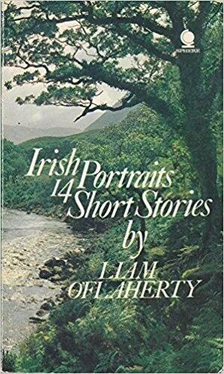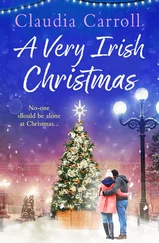Martin hurled the noose three times without success. Then at last the beam came rushing at them, carried on a great receding wave and as Patrick wheeled the boat to avoid its crashing into them, it passed close to their quarter, with its barnacled snout raised up. Martin threw the noose. It caught. Patrick groaned and lay on his oars. The rope went taut. The boat shivered. The beam swung round, held by the taut noose and turned its snout to the boat’s stern. Martin caught his oars and began to row. They turned towards home, followed by the wallowing beam.
Its great weight swung the boat from side to side when the heavy swell came against it. Again it came rushing with upraised snout at the boat when the swell came with it. Rowing with all their force, they had to tack to and fro to avoid its crashing into them. The rope, tied to the vacant seat amidships, passed under Martin’s seat, and ran through a notch in the stern to the log, rasping against the wood. Now it lay buried in the water, slack, as the log was hurtled towards them by the sea. Now it hung taut above the waves, dripping with brine.
Now there were many fins of sharks following the boat, keeping pace. Overhead, seagulls soared on still wings, looking down, cackling.
Patrick watched the fins of the sharks with fixed eyes. His lips were drawn back from his clenched teeth. His white eyebrows were raised up on his wrinkled forehead. Suddenly he dropped his oars, took his knife from his pocket and opened it.
Martin’s back quivered. He dropped his oars and stood up, uttering a strange, wild shriek. He turned on his brother. Patrick was crouching in the prow, gripping the open knife. They rushed at one another. The boat swung round. The beam, carried on a tall wave, came crashing into it.
The brothers, just as they were about to grapple with one another, saw the beam, with upraised snout, looming over them. They raised their hands and uttered a cry of horror. The knife dropped from Patrick’s hands into the sea. They threw their arms around one another in an embrace, as the log fell, smashing them and the boat beneath its weight.
Clasped in one another’s arms, they began to sink.
The sharks’ fins came rushing through the water towards the wreck. Then they dived.
The brothers rose once, still clasping one another in a tight embrace. Then they were tugged sharply downwards and they rose no more.
A mass of weeds gathered around the wrecked boat, with the log, snout upwards, astride it, while seagulls soared all round, screaming.
Mr. Patrick Gilhooley came out of Sinnott’s riding-school in Park Gate Street at four o’clock in the afternoon. He had just taken his first lesson in horsemanship. He felt numb all over the body. Although he walked as usual, by pitching his flat feet out sideways like a motherly old cow, he felt sure that he walked like a cavalry officer, Therefore, in spite of his soreness and the memory of the smile he had seen on an impudent stable-boy’s face during the lesson, he felt very proud of himself. His yellow top-boots had creases above the ankles. His brown riding-breeches were made of the most expensive cord. His jazz pull-over was in the latest fashion. His smart bowler hat was perched at a daring angle. Phew! He felt a very fine and dashing fellow.
To the onlooker, of course, he looked perfectly ridiculous, with his flat feet and his undulating paunch, coming along like an advertisement for a cinema theatre.
Formerly he had been a small shopkeeper in a country village. His shop was a failure commercially because he spent all his time in political agitation. He was chairman of the local Rural District Council, and secretary to three different political organizations. At last, however, his hour struck. His second cousin, Mr. Christopher Mulligan, the solicitor, was appointed by the government as Commissioner to administrate the affairs of a public body, suppressed for corruption. Immediately Mr. Mulligan appointed all his cousins to fill subsidiary posts under the new, incorruptible administration. Mr. Gilhooley became Assistant Deputy Commissioner.
Before Mr. Gilhooley had walked fifty yards from the riding-school gate, he was accosted by a ruffian called the Cadger Byrne. Byrne was a very tiny man. He had a round, sallow face. His eyes were small, sharp and grey. His ears were diminutive and they protruded from the sides of his head instead of sloping in the usual manner. He was dressed in riding-breeches and gaiters. He had the manner and appearance of a disreputable racecourse tout. Exactly what he was.
“Pardon me, yer honour,” said Byrne, standing in front of Mr. Gilhooley, and touching his cap.
“Eh?” said Mr. Gilhooley, starting and halting abruptly.
Here it must be stated that the title “your honour” is the property of a certain class of persons, now becoming defunct, i.e. Irish country gentlemen. In his youth Mr. Gilhooley had been in the habit of touching his cap and saying “Good morning, yer honour,” when the local landowner rode into the village mounted on an enormous hunter stallion. The landowner was in the habit of reining in his stallion, calling to Mr. Gilhooley’s father, then proprietor of the village shop, and without taking the trouble to dismount or to look at Mr. Gilhooley’s father, he ordered perhaps a box of matches to be sent at once to Ballyhooley Manor. Recently Mr. Gilhooley loathed the title “Your honour.” All his political agitation had been directed against the class of persons who held that title. But now when he heard himself addressed by that title for the first time in his life, an extraordinary thrill of pleasure permeated his whole fat body.
The thrill of pleasure passed in a moment, giving way to a suspicion that he was being insulted. A sense of inferiority passed over him, causing a little shiver down his spine and a lump in his throat, just as when he committed some faux pas in the drawing-rooms to which he had recently been invited on account of his new position. He looked at Byrne shrewdly.
But Byrne’s upraised and expectant face was perfectly respectful. It bore that subservient smile which Mr. Gilhooley recognized and understood very well, formerly of course. Mr. Gilhooley became reassured. Undoubtedly the fellow mistook him, Mr. Gilhooley, for one of the old caste.
“What do you want?” said Mr. Gilhooley, stretching out his right boot with the toe upraised and staring at the toe, with a serious expression on his face.
He spoke sourly and rather arrogantly, but he was really very pleased.
“Would yer honour put in a good word for me?” said Byrne in a very fawning voice.
“How do you mean?” said Mr. Gilhooley, staring again. Since the man wanted something he had ceased to be pleased. “Where could I put in a good word for you?”
“In the stables, o’course, yer honour,” said Byrne, edging closer and looking at Mr. Gilhooley with an almost impertinent smile of intimacy on his face.
“What have I got to do with stables?” cried Mr. Gilhooley indignantly. He nodded his head backwards towards the riding-school and added ferociously: “D’ye think I’m employed in there?”
Byrne waggled his head from side to side knowingly and the smile on his face broadened.
“Now, yer honour,” he said, “sure ye know very well I didn’t mane that? Don’t I know a gentleman when I see wan? But, yer honour, what I’d be grateful to ye for is if ye’d put in a good word for me in yer own stables, yer honour.”
“Huh!” said Mr. Gilhooley, now smiling broadly and swelling with a consciousness of a new dignity. “I’ve got no stables.”
“Ah! That’s all right, yer honour,” said Byrne in a tone that clearly indicated he didn’t believe a word of it.
“Ho!” said Mr. Gilhooley again. “Did ye ever hear the like of it!”
Читать дальше












